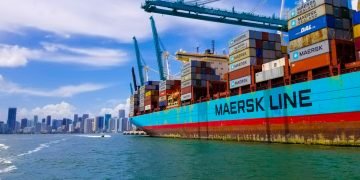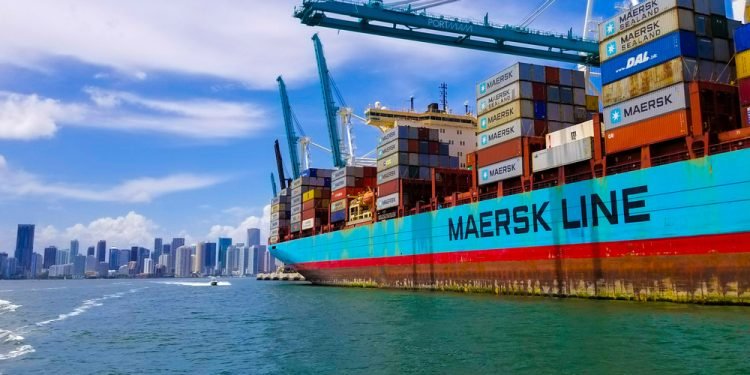Navigating Red Sea Challenges: Maersk’s Resilient Solutions
The recent tumult in the Red Sea/Gulf of Aden region has posed significant logistics hurdles for global trade. With 33 reported attacks to date, most carriers are opting to reroute vessels around the Cape of Good Hope, tacking on roughly 4,000 additional miles to voyages. This shift translates to an extra 1-3 weeks of transit time and exacerbates port congestion issues. The lack of available capacity looms large, with Maersk estimating a need for 6-7% more capacity just to handle regular cargo volumes.
Customer Supply Chain Impact
Logistics operators grappling with these challenges directly affect companies reliant on Suez Canal transit, resulting in major supply chain disruptions. Prolonged transit times and unreliable delivery estimates have made inventory management a headache for customers. Delays in container return to Asia further strain capacity, with many carriers struggling to meet planned shipment schedules, forcing some companies to halt assembly lines. These disruptions hike up logistics costs as carriers adapt to Red Sea challenges.
Maersk’s Mitigating Measures
In response, Maersk has undertaken targeted investments to bolster resilience and ease supply chain disruptions. Speeding up vessel travel around the Cape of Good Hope, albeit increasing fuel costs, minimizes negative impacts on customer supply chains. Network redesigns and investments in additional containers and vessels have also been instrumental. Coastal shuttles and mainliner vessels added to Asian trades expedite cargo consolidation and increase total capacity. Thousands of additional containers have been deployed to alleviate empty container shortages, resulting in increased allocation levels for Maersk contract customers.
Alternative Resilience Solutions
In addition to Ocean services investments, Maersk offers alternative options to mitigate cargo delays and maintain flexibility. Maersk Air door-to-door services ensure fast, reliable logistics solutions across diverse industries and cargo types. The Maersk Sea-Air solution combines sea freight cost-effectiveness with air freight speed, reducing transit time without substantial cost increases. Maersk Cross-Border transportation offers a new route from Xi’an, China, to Ambarli, Turkey, via block train, providing reliable, eco-friendly solutions with cargo space guarantees.
Continued Commitment to Resilience
Maersk remains vigilant in monitoring the Red Sea situation, dynamically improving networks to enhance efficiency and reduce logistics costs. While logistics costs remain elevated, Maersk’s investments help maintain inventory flow, mitigate delays, and alleviate customer risk amidst supply chain disruptions. Your trust, loyalty, and understanding are invaluable as we navigate these challenges together. For any inquiries or cargo options discussions, please reach out to your local Maersk representative.























